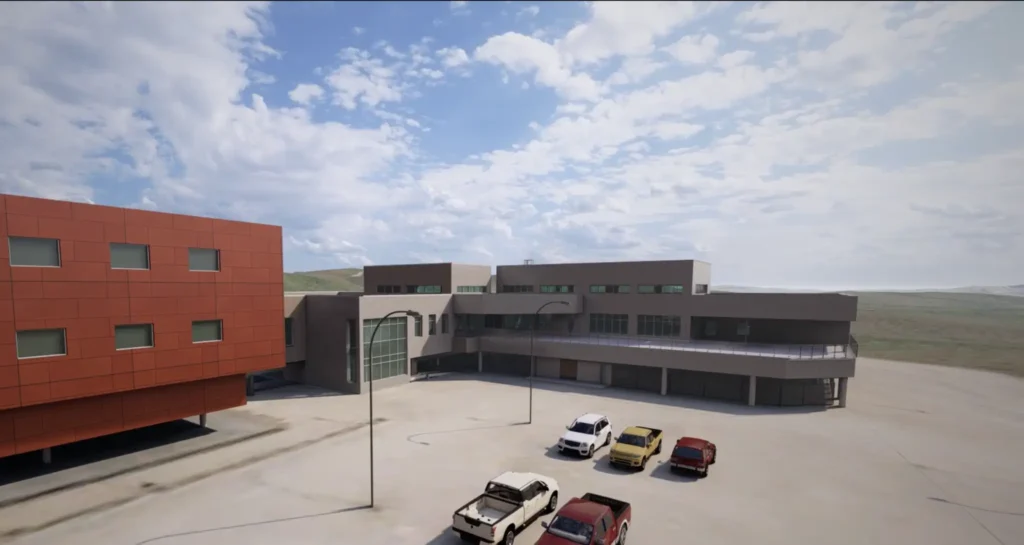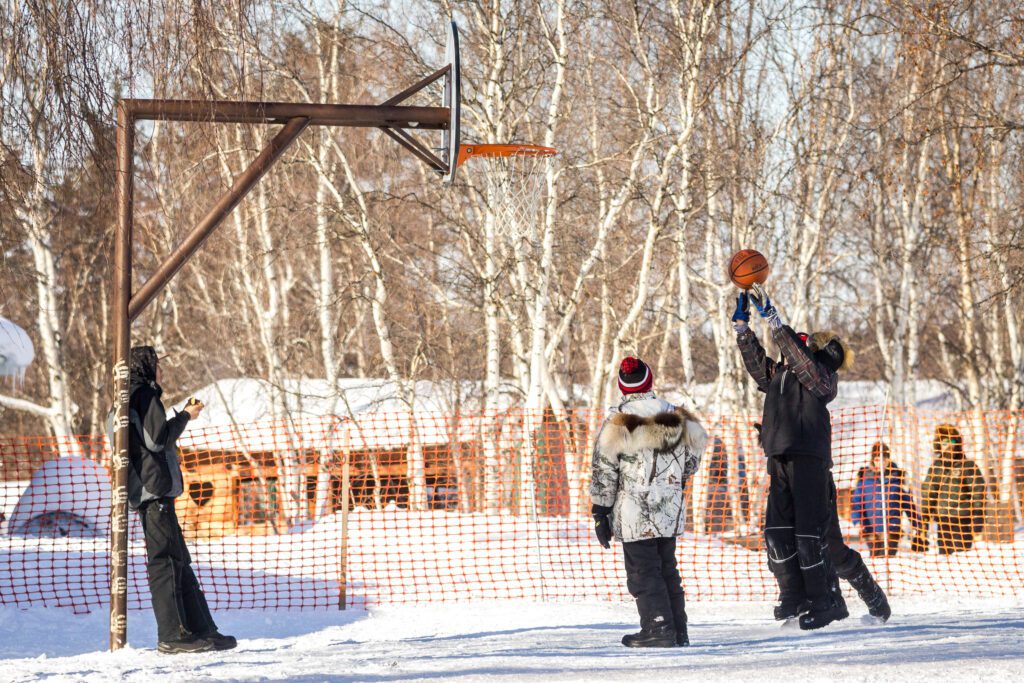The United States, the state of Alaska, and our region are experiencing what some medical experts have named an opioid epidemic. According to the CDC, deaths from prescription opioids — drugs like oxycodone — have quadrupled since 1999. The Tribal Healers Program was established at the Norton Sound Health Corporation Regional Hospital almost 20 years ago as an alternative to some modern medical practices, including using prescription painkillers or opioid drugs. KNOM’s Davis Hovey went through a session with NSHC’s Tribal Healers to learn about how they can help combat opioid addiction.
Currently working for the Norton Sound Health Corporation are two Tribal healers, Eva Menadelook and Maria Dexter, along with one trainee: Tanya Olanna.
As a patient, you will walk into the Tribal Healers’ office in Nome at the regional hospital and see a single padded massage table in the center of the room. You will lie down on the sanitary table sheet of paper as the healers put on gloves. Tribal healers only use their hands and oil to relieve muscular pain: no tools or instruments, no pills or prescription drugs. At the end of the session, the healers suggest different exercises to help you with the pain, and they highly recommend drinking water.
To begin the session, Menadelook says she normally starts by asking patients if they’ve ever sprained an ankle.
“When you hurt yourself, especially around your foot, ankle, or calf, those tendons, they keep moving up your body,” explained Menadelook. “We basically start towards the pain, like, if people come in with low back pain, we start from the feet towards it and from the shoulders toward it (not on it). So, the pained area is the last place that we actually help, because the pain started someplace else.”
Menadelook says she, as a tribal healer, focuses more on tendons than on muscles. That is in part due to her Inupiaq background.
“If you ask other people in our Inupiaq language, I’ve never heard anyone say a word for ‘muscle,’ but I hear them talk about the tendon, and that’s what I heard all of my life, and that’s basically what we do with our hands. We check the tendons out; we make sure the skeletal form is in alignment, because if one bone is out of place, then that tendon is not laying good,” stated Menadelook.
When asked how they got involved in tribal healing, Maria Dexter recalled how she started using her hands as a health aide in Golovin before coming to NSHC.
“And then Norton Sound had a position open in ’04, so I put in a job waiver and got hired. And I didn’t understand a lot about how I was able to work with my hands until I went up to Maniliaq and talked to their tribal doctors.” Dexter smiled as she said, “I’ve always enjoyed helping people, and it’s always good to see people happy when we help them.”
Dexter and Menadelook agree tribal healing is method of alleviating pain that is an alternative to relying on painkillers or other pills. Menadelook says tribal healing was present in Alaska before Western medicine came along, but today, Western medicine and tribal healing are both needed.
“It has to coexist with modern medicine,” Menadelook stated. “We prevent lots and lots of illnesses from progressing, we prolong surgery — like for psychiatric nerve problems, carpal tunnel, tendonitis, simple things that we take for granted every day — we prolong those things, and we help people keep range of motion through their limbs.”
For Menadelook, she says, normally, she doesn’t see more than 5 people a day, but Dexter points out that it depends on the patients that come in that day. Regardless of the number of patients or how old the patients are, Dexter says none of their patients need to have health insurance to be treated by a tribal healer.
“Because the Tribal Healers are not licensed like the Western professionals, you know doctors, P.A.s,” said Dexter, “what we do, it’s called, like, a courtesy: we are paid employees of Norton Sound, and anyone is able to come and see us.”
Currently, tribal healing is only offered in a few communities throughout the region, but a new program could be coming to Bethel in the near future. VP of Communications of the Yukon-Kuskokwim Health Corporation, Tiffany Zulkosky, stated via email that a group of YKHC staff, including the President/CEO of YKHC, toured the Norton Sound’s Tribal Healer program last Friday.
This was only a preliminary visit, so it is unknown at this time whether or not a tribal healers program would be made available in Bethel or how long it would take to establish the new program.







